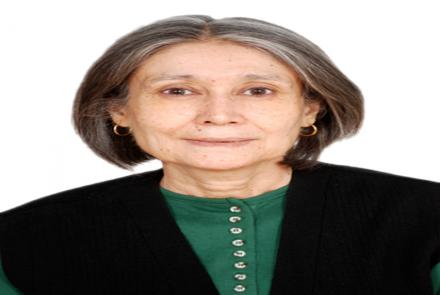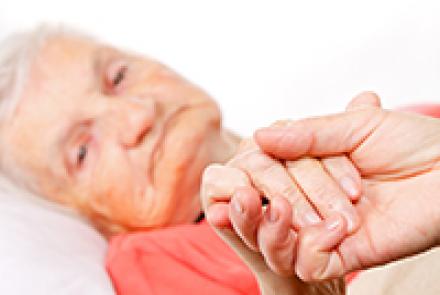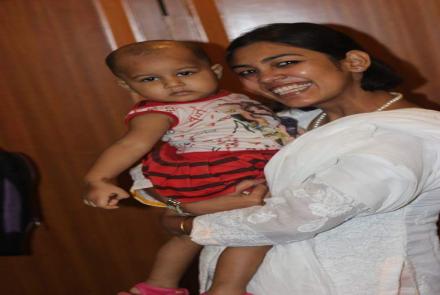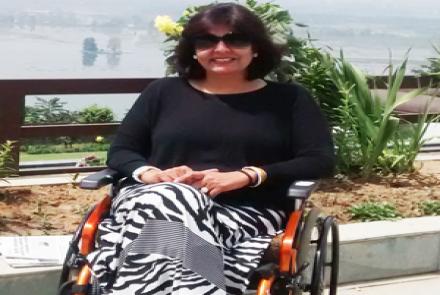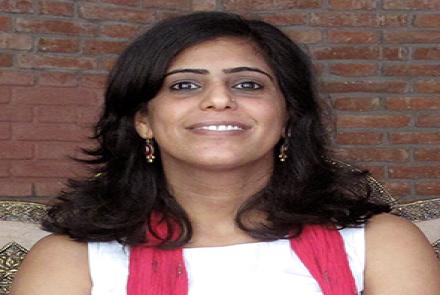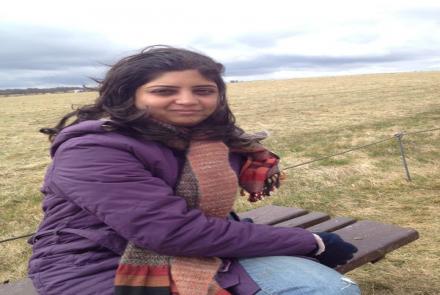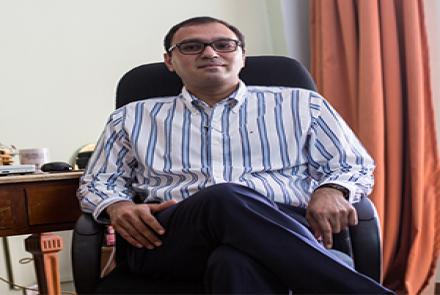
रेबेका डिसूजा नाग फाउंडेशन की एक नैदानिक मनोवैज्ञानिक है. नाग फाउंडेशन पुणे का एक एनजीओ है जो कैंसर रोगियों के कल्याण के लिए काम कर रहा है. रेबेका का कहना है कि कीमोथेरेपी के कारण बालों का झड़ना महिलाओं के लिए एक बहुत बड़ा डर है. इस लेख में उन्होंने इससे जुड़ी भावनाओं और तनाव से निपटने के तरीके सुझाएँ हैं.
कैंसर एक बहुत ही खतरनाक और बदनाम बीमारी है. ऐसा कुछ हद तक जागरूकता की कमी के कारण है और कुछ हद तक इस बीमारी और इसके इलाज के प्रति हमारी समझ कम हॊने के कारण है. जागरूकता की कमी इसके निदान में विलम्ब के मुख्य कारणों में से एक है और इसके उपचार की समझ की कमी के कारण मानसिक और सामाजिक क्लेश ज्यादा होता है.
कैंसर से जुड़े बड़े डर
यदि आप मरीज़ों के डर को सूचीबद्ध करते हैं तो सूची में सबसे पहले निदान की सच्चाई को मान न पाना है और फिर उपचार का डर आता है. निदान की स्वीकृति इसलिए आती है क्योंकि जैसा की एक मरीज़ ने साझा किया 'सब कुछ इतनी तेज़ी से हुआ कि मुझे सोचने का समय ही नहीं मिला'. एक दूसरे मरीज़ ने साझा किया 'मेरे पास कोई विकल्प नहीं था. मैं जीना चाहती थी और स्वीकृति समस्या का आधा हल है'.
अगले डर का सामना करना ज्यादा कठिन है क्योंकि यह न केवल आपके रूप को बदलता है बल्कि साथ-साथ यह आपको निरंतर याद दिलाता है कि आप बड़े 'सी' का सामना कर रही हैं. यह इलाज से इनकार करने के और लोगों के बीच उठाना-बैठना बंद करके अलगाव महसूस करने के प्रमुख कारणों में से एक है. महिलाओं के लिए यह खासतौर से एक बड़ी चुनौती है.
बालों का झड़ना कीमोथेरेपी के दुष्प्रभावों में से एक है और यह अक्सर महिलाओं के लिए सबसे अधिक भयानक होता है. इस से उनके आत्म-सम्मान और आत्मविश्वास पर असर होता है.
झड़ते हुए बालों का सामना करना
तो महिलाएं इस खौफ का सामना कैसे करती हैं? जब आप महिला रोगियों से बात करते हैं और उनकी कहानियाँ सुनते हैं तो आपको उनके दर्द, शर्म, ग्लानि और आत्म-तरस के साथ-साथ उनके साहस, दृढ़ निश्चय, संकल्प और सच्चाई अपनाने की कहानियाँ भी सुनाई देगी.
बेहिसाब रोना, आईने में अपने आप को देखने से हिचकिचाना, दोस्तों और परिवार से दूर रहना, अपने बालों को एक भेंट के रूप में दान कर देना, साहसिक बयान देना - यह सब इस लम्बे सफ़र में देखा जाता है. आंसुओं से शुरू हुई यह यात्रा अकसर आत्म-विश्वास पर जाकर ख़त्म होती है.
कैंसर से जुड़े कलंक के कई स्रोत होते हैं. शायद शुभचिंतक - दोस्त और परिवार वाले - बिना किसी बुरे इरादे के, कुछ अटपटी बात कह दें. शायद लोग मरीज़ को दयनीय दृष्टि से देखें. या चुप्पी साध लें, संपर्क छोड़ दें. या हर बात पर - चाहे वह उपचार हो या खाना या व्यायाम - सब पर सलाह देते रहें.
वास्तव में मौन समर्थन, शांत प्रोत्साहन, और सुनने के लिए हमेशा तैयार रहना, इन सब से सचमुच बहुत मदद मिलती है.
बालों को व्यक्ति की मुकुट महिमा माना जाता है. बाल हमारे आत्म-मूल्यांकन को बढ़ाते हैं और हमारी पहचान का एक अंग हैं. हममें से अधिकाँश लोग हमेशा अपने बालों को लेकर चिंतित रहते हैं - या तो बाल बहुत सीधे हैं या बहुत घुंघराले, कभी झड़ रहे हैं, कभी पतले हो रहे हैं. हम लंबे, घने, रेशमी बालों की कामना करते हैं क्योंकि यह नारीत्व के आभास से जुड़े हैं.
जब श्रीमती ए हर बार बाथरूम में, बिस्तर पर या तकिये पर अपने बालों के गुच्छे देख कर रोने लगीं, तो एक दिन उनकी 18 वर्षीय बेटी ने अपने बाल मुंडवा लिए. इससे श्रीमती ए को साहस मिला और वे खुद भी गंजी हो गयीं. एक छोटी सी कोशिश से काफी गहरा असर हुआ.
जैकलीन कोलाको अपनी दोस्त उषा जेरोम का साथ देने के लिए गंजी हो गई.
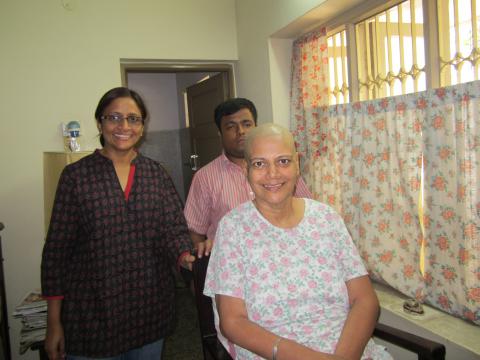
शिल्पा के पति उसके गंजे होने पर समर्थन देने के लिए खुद गंजे हो गए.
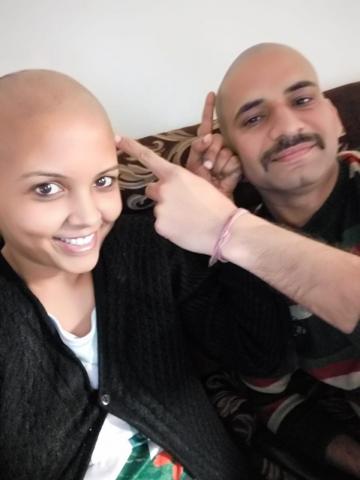
झड़ते बालों के बारे में उन्हें कैसा महसूस होता है इस बारे में बात करनी जरूरी है क्योंकि उनकी भावनाएं उनके शरीर को ठीक करने की क्षमता पर असर करती है. दर्द की अभिव्यक्ति से भावनाओं का नामकरण किया जा सकता है. अक्सर मरीज़ गुस्से, अपराधबोध, शर्म और उदासी जैसी भावनाओं के एक समूह से गुज़रते हैं. किसी से बात करने से भावनाओं को सुलझाना और उन्हें दूसरे नजरिये से देखना संभव हो जाता है, और इस से तनाव कम होता है, स्वीकृति बढ़ती है, और अन्य समाधान और विकल्प सूझने में मदद मिलती है. बात करने के लिए सही व्यक्ति को चुनना जरूरी है. परिवार के सदस्य या दोस्त के बजाय इस स्थिति से परे किसी निष्पक्ष या तटस्थ व्यक्ति से बात करना एक अच्छा चुनाव है. किसी ऐसे व्यक्ति को ढूंढें जिसे कैंसर था पर जो उस से उभर पाया है (उत्तरजीवी) - इन से नए रोगियों को झड़ते हुए बालों का सामना करने में मदद मिलती है.
विग, दुपट्टा, टोपी पहनना
विग या स्टाइलिश दुपट्टा या टोपी पहनने से महिलाओं को फिर से उन लोगों से मिलने-जुलने की हिम्मत मिलती है और लगता है की उनको लोग सामान्य रूप से स्वीकार कर पायेंगे, और ज्यादा टिप्पणी और सवाल नहीं होंगे. विग पहनने से महिलाओं का अपने ऑफिस या कार्यस्थल में स्वीकार किया जाना आसान हो गया है और कीमोथेरेपी के दौरान भी वे अपने जीवन को पहले की तरह जी पा रही हैं.
Saroj, Meenakshi and Shachi on scarves, hats and wigs
अच्छी खबर यह है कि बेहतर कीमोथेरेपी और अन्य आविष्कारों के कारण महिलाओं के लिए इलाज करवाना पहले से आसान हो रहा है.
याद रहे:
- आप जो महसूस कर रहे हैं उसके बारे में किसी से बात करें
- विग या स्कार्फ के उपयोग पर विचार करें
- अपने डॉक्टर से “स्कैल्प कूलिंग” के बारे में जानकारी लें
- किसी उत्तरजीवी (सरवाईवर) से उनके अनुभव के बारे में बात करें
- बाल झड़ने को अपने स्टाइल और रूप को बदलने का अवसर समझें
- धैर्य रखें
- बाल अधिकाँश केस में वापस आ जाते हैं
रेबेका नाग फाउंडेशन में एक नैदानिक मनोवैज्ञानिक है.


